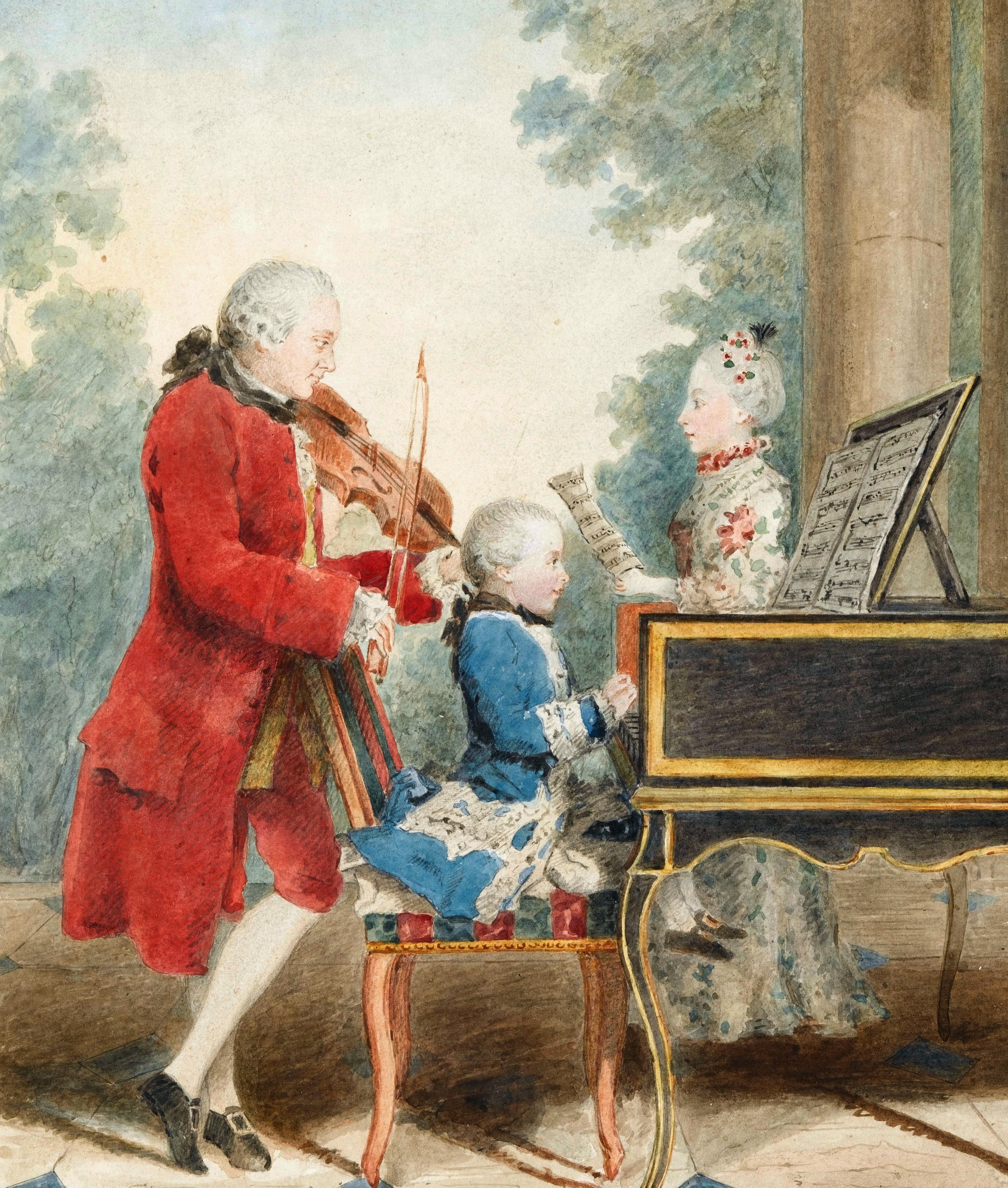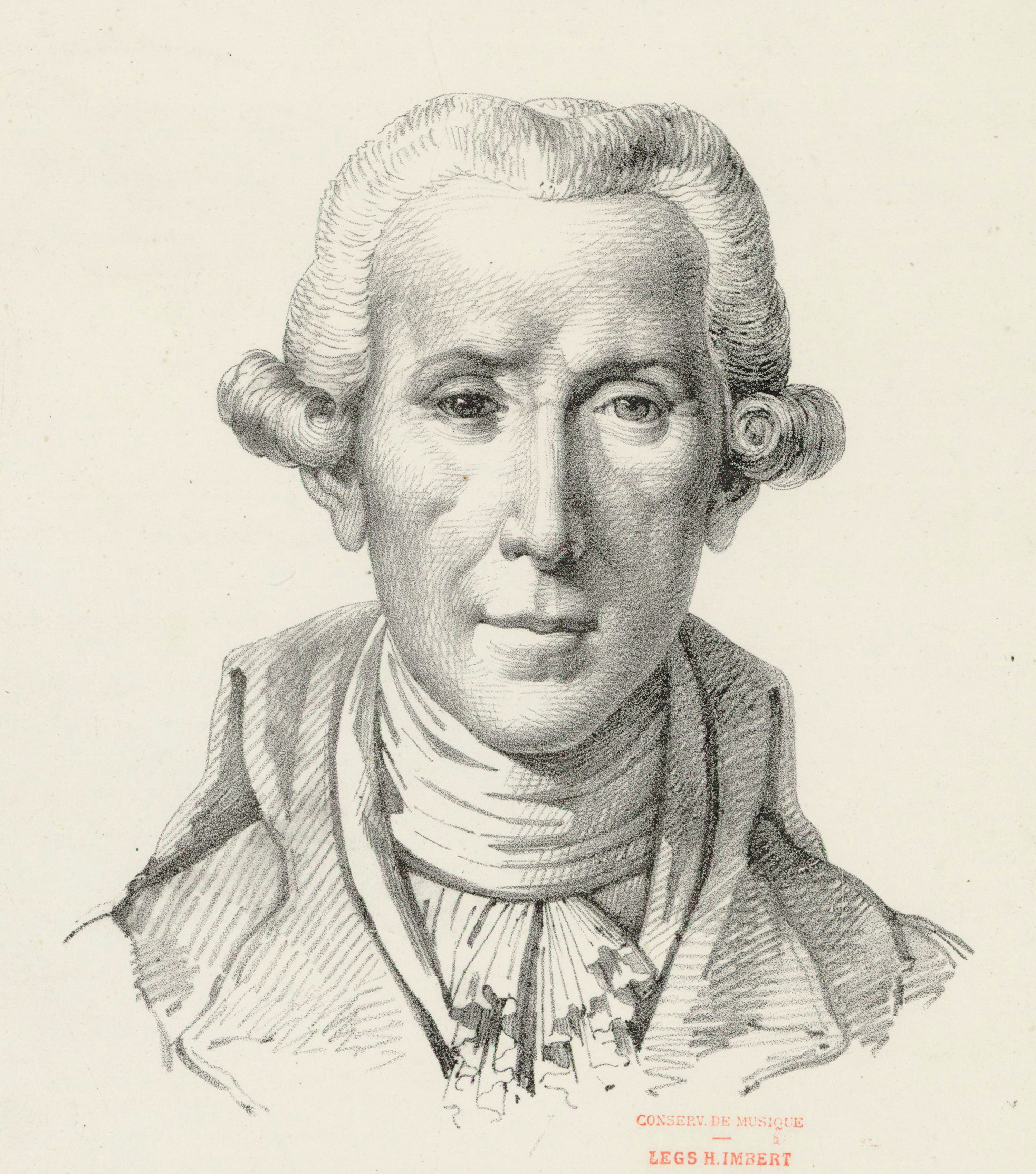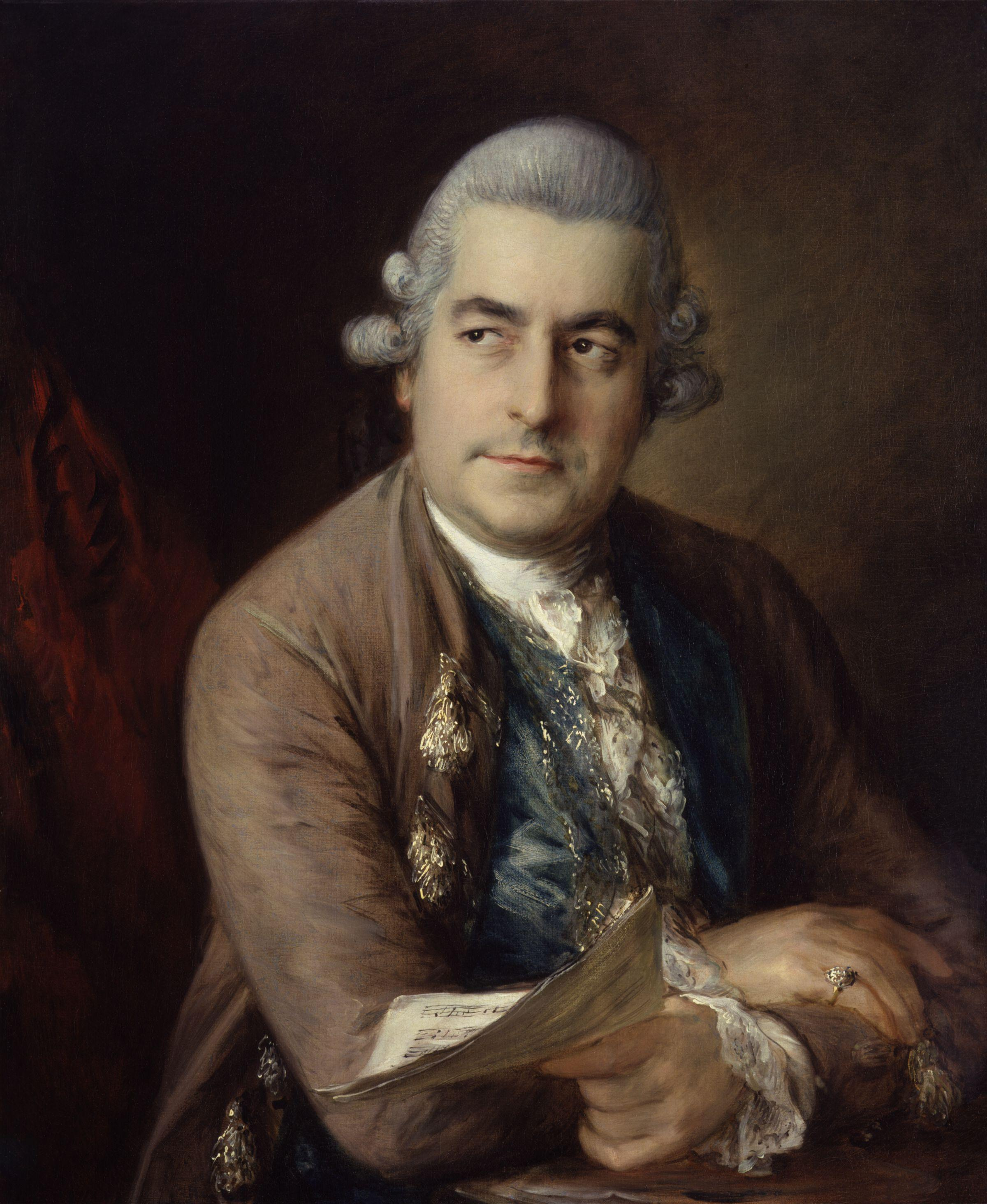|
Classical Period (music)
The Classical period was an era of classical music between roughly 1750 and 1820. The Classical period falls between the Baroque and the Romantic periods. Classical music has a lighter, clearer texture than Baroque music, but a more sophisticated use of form. It is mainly homophonic, using a clear melody line over a subordinate chordal accompaniment, Blume, Friedrich. ''Classic and Romantic Music: A Comprehensive Survey''. New York: W. W. Norton, 1970 but counterpoint was by no means forgotten, especially in liturgical vocal music and, later in the period, secular instrumental music. It also makes use of '' style galant'' which emphasized light elegance in place of the Baroque's dignified seriousness and impressive grandeur. Variety and contrast within a piece became more pronounced than before and the orchestra increased in size, range, and power. The harpsichord was replaced as the main keyboard instrument by the piano (or fortepiano). Unlike the harpsichord, which plucks ... [...More Info...] [...Related Items...] OR: [Wikipedia] [Google] [Baidu] |
Mozart Family Crop
Wolfgang Amadeus Mozart (27 January 17565 December 1791), baptised as Joannes Chrysostomus Wolfgangus Theophilus Mozart, was a prolific and influential composer of the Classical period. Despite his short life, his rapid pace of composition resulted in more than 800 works of virtually every genre of his time. Many of these compositions are acknowledged as pinnacles of the symphonic, concertante, chamber, operatic, and choral repertoire. Mozart is widely regarded as among the greatest composers in the history of Western music, with his music admired for its "melodic beauty, its formal elegance and its richness of harmony and texture". Born in Salzburg, in the Holy Roman Empire, Mozart showed prodigious ability from his earliest childhood. Already competent on keyboard and violin, he composed from the age of five and performed before European royalty. His father took him on a grand tour of Europe and then three trips to Italy. At 17, he was a musician at the Salzburg court bu ... [...More Info...] [...Related Items...] OR: [Wikipedia] [Google] [Baidu] |
String Quartet
The term string quartet can refer to either a type of musical composition or a group of four people who play them. Many composers from the mid-18th century onwards wrote string quartets. The associated musical ensemble consists of two violinists, a violist, and a cellist. The string quartet was developed into its present form by composers such as Franz Xaver Richter, and Joseph Haydn, whose works in the 1750s established the ensemble as a group of four more-or-less equal partners. Since Haydn the string quartet has been considered a prestigious form; writing for four instruments with broadly similar characteristics both constrains and tests a composer. String quartet composition flourished in the Classical era, and Wolfgang Amadeus Mozart, Ludwig van Beethoven and Franz Schubert each wrote a number of them. Many Romantic and early-twentieth-century composers composed string quartets, including Felix Mendelssohn, Robert Schumann, Johannes Brahms, Antonín Dvořák, Leoš ... [...More Info...] [...Related Items...] OR: [Wikipedia] [Google] [Baidu] |
Luigi Boccherini
Ridolfo Luigi Boccherini (, also , ; 19 February 1743 – 28 May 1805) was an Italian composer and cellist of the Classical era whose music retained a courtly and ''galante'' style even while he matured somewhat apart from the major European musical centers. He is best known for a minuet from his String Quintet in E, Op. 11, No. 5 ( G 275), and the Cello Concerto in B flat major (G 482). The latter work was long known in the heavily altered version by German cellist and prolific arranger Friedrich Grützmacher, but has recently been restored to its original version. Boccherini's output also includes several guitar quintets. The final movement of the Guitar Quintet No. 4 in D (G 448) is a fandango, a lively Spanish dance. Biography Boccherini was born into a musical family in Lucca, Italy in 1743. He was the third child of Leopoldo Boccherini, a cellist and double-bass player, and the brother of Giovanni Gastone Boccherini, a poet and dancer who wrote librettos for Ant ... [...More Info...] [...Related Items...] OR: [Wikipedia] [Google] [Baidu] |
Johann Christian Bach
Johann Christian Bach (September 5, 1735 – January 1, 1782) was a German composer of the Classical era, the eighteenth child of Johann Sebastian Bach, and the youngest of his eleven sons. After living in Italy for several years, Bach moved to London in 1762, where he became known as "the London Bach". He is also sometimes known as "the English Bach", and during his time spent living in the British capital, he came to be known as John Bach. He is noted for playing a role in influencing the concerto styles of Haydn and Mozart. He contributed significantly to the development of the new sonata principle. Life Johann Christian Bach was born to Johann Sebastian and Anna Magdalena Bach in Leipzig, Germany. His distinguished father was already 50 at the time of his birth—an age gap exemplified by the sharp differences in the musical styles of father and son. Even so, father Bach instructed Johann Christian in music until his death in 1750. After his father's death, he worked ( ... [...More Info...] [...Related Items...] OR: [Wikipedia] [Google] [Baidu] |
Carl Philipp Emanuel Bach
Carl Philipp Emanuel Bach (8 March 1714 – 14 December 1788), also formerly spelled Karl Philipp Emmanuel Bach, and commonly abbreviated C. P. E. Bach, was a German Classical period musician and composer, the fifth child and second surviving son of Johann Sebastian Bach and Maria Barbara Bach. C. P. E. Bach was an influential composer working at a time of transition between his father's Baroque style and the Classical style that followed it. His personal approach, an expressive and often turbulent one known as ' or 'sensitive style', applied the principles of rhetoric and drama to musical structures. His dynamism stands in deliberate contrast to the more mannered galant style also then in vogue. To distinguish him from his brother Johann Christian, the "London Bach", who at this time was music master to Queen Charlotte of Great Britain, C. P. E. Bach was known as the "Berlin Bach" during his residence in that city, and later as the "Hamburg Bach" when he s ... [...More Info...] [...Related Items...] OR: [Wikipedia] [Google] [Baidu] |
Franz Schubert
Franz Peter Schubert (; 31 January 179719 November 1828) was an Austrian composer of the late Classical and early Romantic eras. Despite his short lifetime, Schubert left behind a vast ''oeuvre'', including more than 600 secular vocal works (mainly lieder), seven complete symphonies, sacred music, operas, incidental music, and a large body of piano and chamber music. His major works include " Erlkönig" (D. 328), the Piano Quintet in A major, D. 667 (''Trout Quintet''), the Symphony No. 8 in B minor, D. 759 (''Unfinished Symphony''), the "Great" Symphony No. 9 in C major, D. 944, the String Quintet (D. 956), the three last piano sonatas (D. 958–960), the opera ''Fierrabras'' (D. 796), the incidental music to the play ''Rosamunde'' (D. 797), and the song cycles ''Die schöne Müllerin'' (D. 795) and ''Winterreise'' (D. 911). Born in the Himmelpfortgrund suburb of Vienna, Schubert showed uncommon gifts for music from an early age. His father gave him his first vi ... [...More Info...] [...Related Items...] OR: [Wikipedia] [Google] [Baidu] |
Ludwig Van Beethoven
Ludwig van Beethoven (baptised 17 December 177026 March 1827) was a German composer and pianist. Beethoven remains one of the most admired composers in the history of Western music; his works rank amongst the most performed of the classical music repertoire and span the transition from the Classical period to the Romantic era in classical music. His career has conventionally been divided into early, middle, and late periods. His early period, during which he forged his craft, is typically considered to have lasted until 1802. From 1802 to around 1812, his middle period showed an individual development from the styles of Joseph Haydn and Wolfgang Amadeus Mozart, and is sometimes characterized as heroic. During this time, he began to grow increasingly deaf. In his late period, from 1812 to 1827, he extended his innovations in musical form and expression. Beethoven was born in Bonn. His musical talent was obvious at an early age. He was initially harshly and intensively t ... [...More Info...] [...Related Items...] OR: [Wikipedia] [Google] [Baidu] |
Wolfgang Amadeus Mozart
Wolfgang Amadeus Mozart (27 January 17565 December 1791), baptised as Joannes Chrysostomus Wolfgangus Theophilus Mozart, was a prolific and influential composer of the Classical period. Despite his short life, his rapid pace of composition resulted in more than 800 works of virtually every genre of his time. Many of these compositions are acknowledged as pinnacles of the symphonic, concertante, chamber, operatic, and choral repertoire. Mozart is widely regarded as among the greatest composers in the history of Western music, with his music admired for its "melodic beauty, its formal elegance and its richness of harmony and texture". Born in Salzburg, in the Holy Roman Empire, Mozart showed prodigious ability from his earliest childhood. Already competent on keyboard and violin, he composed from the age of five and performed before European royalty. His father took him on a grand tour of Europe and then three trips to Italy. At 17, he was a musician at the Salzburg court ... [...More Info...] [...Related Items...] OR: [Wikipedia] [Google] [Baidu] |
Joseph Haydn
Franz Joseph Haydn ( , ; 31 March 173231 May 1809) was an Austrian composer of the Classical period. He was instrumental in the development of chamber music such as the string quartet and piano trio. His contributions to musical form have led him to be called "Father of the Symphony" and "Father of the String Quartet". Haydn spent much of his career as a court musician for the wealthy Esterházy family at their Eszterháza Castle. Until the later part of his life, this isolated him from other composers and trends in music so that he was, as he put it, "forced to become original". Yet his music circulated widely, and for much of his career he was the most celebrated composer in Europe. He was a friend and mentor of Mozart, a tutor of Beethoven, and the elder brother of composer Michael Haydn. Biography Early life Joseph Haydn was born in Rohrau, Austria, a village that at that time stood on the border with Hungary. His father was Mathias Haydn, a wheelwright who also ... [...More Info...] [...Related Items...] OR: [Wikipedia] [Google] [Baidu] |
Opera
Opera is a form of theatre in which music is a fundamental component and dramatic roles are taken by singers. Such a "work" (the literal translation of the Italian word "opera") is typically a collaboration between a composer and a librettist and incorporates a number of the performing arts, such as acting, scenery, costume, and sometimes dance or ballet. The performance is typically given in an opera house, accompanied by an orchestra or smaller musical ensemble, which since the early 19th century has been led by a conductor. Although musical theatre is closely related to opera, the two are considered to be distinct from one another. Opera is a key part of the Western classical music tradition. Originally understood as an entirely sung piece, in contrast to a play with songs, opera has come to include numerous genres, including some that include spoken dialogue such as '' Singspiel'' and '' Opéra comique''. In traditional number opera, singers employ two st ... [...More Info...] [...Related Items...] OR: [Wikipedia] [Google] [Baidu] |
Choir
A choir ( ; also known as a chorale or chorus) is a musical ensemble of singers. Choral music, in turn, is the music written specifically for such an ensemble to perform. Choirs may perform music from the classical music repertoire, which spans from the medieval era to the present, or popular music repertoire. Most choirs are led by a conductor, who leads the performances with arm, hand, and facial gestures. The term ''choir'' is very often applied to groups affiliated with a church (whether or not they actually occupy the quire), whereas a ''chorus'' performs in theatres or concert halls, but this distinction is not rigid. Choirs may sing without instruments, or accompanied by a piano, pipe organ, a small ensemble, or an orchestra. A choir can be a subset of an ensemble; thus one speaks of the "woodwind choir" of an orchestra, or different "choirs" of voices or instruments in a polychoral composition. In typical 18th century to 21st century oratorios and masses, 'chorus' ... [...More Info...] [...Related Items...] OR: [Wikipedia] [Google] [Baidu] |
Art Song
An art song is a Western vocal music composition, usually written for one voice with piano accompaniment, and usually in the classical art music tradition. By extension, the term "art song" is used to refer to the collective genre of such songs (e.g., the "art song repertoire").Meister, ''An Introduction to the Art Song'', pp. 11–17. An art song is most often a musical setting of an independent poem or text, "intended for the concert repertory" "as part of a recital or other relatively formal social occasion". While many pieces of vocal music are easily recognized as art songs, others are more difficult to categorize. For example, a wordless vocalise written by a classical composer is sometimes considered an art song and sometimes not. Other factors help define art songs: *Songs that are part of a staged work (such as an aria from an opera or a song from a musical) are not usually considered art songs.Kimball, p. xiv However, some Baroque arias that "appear with great fr ... [...More Info...] [...Related Items...] OR: [Wikipedia] [Google] [Baidu] |











